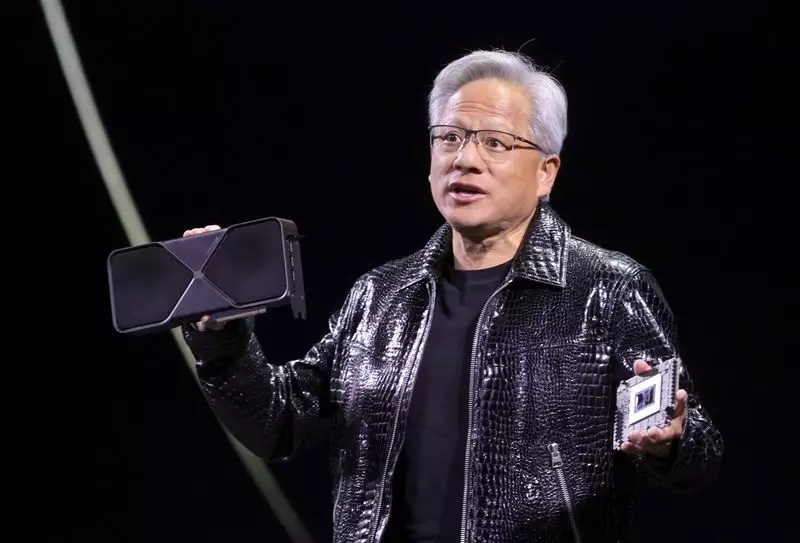Nvidia continues to assert its dominance in the tech landscape with a barrage of announcements at CES 2025, held in Las Vegas. The company, renowned for its cutting-edge technology, unveiled ambitious new products aimed at revolutionizing artificial intelligence applications for robotics, enhancing gaming experiences, and even launching a desktop computer tailored for developers. As the second-highest valued company globally, Nvidia’s movements could significantly reshape multiple industries through innovation and strategic foresight.
One of the standout introductions from CEO Jensen Huang was the Cosmos foundation models, a system of artificial intelligence intended to generate synthetic training data. This method promises to drastically reduce costs associated with training robots and self-driving vehicles. Traditionally, training these intelligent systems requires extensive real-world data collection—often involving deploying vehicles to gather data or employing humans for tedious repetitive tasks. In contrast, Cosmos enables users to create photo-realistic videos simply from text prompts, adhering to the laws of physics. This approach not only streamlines data acquisition but also facilitates the development of more reliable autonomous systems.
However, the effectiveness and market penetration of these models remain to be critically assessed. Analyst Vivek Arya from Bank of America expressed skepticism regarding the broader commercial viability of this technology, suggesting that it might conservatively remain a niche opportunity, similar to the challenges faced by the metaverse and autonomous vehicles. For Nvidia, success hinges on the balance between reliability, cost-efficiency, and widespread adoption.
Nvidia also aimed squarely at gamers with the launch of its next-generation gaming chips, dubbed the RTX 50 series. Featuring the new ‘Blackwell’ AI technology, these chips promise to elevate video game graphics to unprecedented levels, merging advanced algorithms with artistic detail. Particularly remarkable are the enhancements aimed at ‘shaders,’ which can take simple objects, like a teapot, and infuse them with rich imperfections—making them more lifelike.
With price points ranging from $549 to $1,999 and releases scheduled for late January and February, these chips are set to invigorate the gaming market significantly. Technology consultant Ben Bajarin noted a positive short-term outlook for Nvidia sales attributable to these chips as they attract both game developers and enthusiastic gamers alike. The thrust towards ultra-realistic graphics not only meets consumers’ demands for immersion but also signals Nvidia’s commitment to remaining at the helm of technological advancement in gaming.
In a surprising pivot towards custom-built machines, Nvidia unveiled Project DIGITS—its inaugural desktop computer intended explicitly for software developers. This machine, priced at $3,000, is engineered to facilitate rapid testing of AI systems. It incorporates the same powerful chips found in Nvidia’s data center technology, albeit in a form factor that caters to the unique needs of individual developers.
By integrating a processor developed in collaboration with MediaTek, Nvidia is positioning Project DIGITS as a tool that empowers developers to harness sophisticated AI capabilities while facilitating swift iteration in software design and testing. With a release date set for March, this launch illustrates Nvidia’s recognition of developers as a critical audience for its forward-looking technologies.
Nvidia has also leveraged its technology within the automotive industry, announcing that Toyota will implement its Orin chips and advanced operating system for driver assistance features in several upcoming vehicle models. Although specifics about the integrations were limited, this partnership encapsulates Nvidia’s strategy of embedding its technology within significant sectors outside core computing—pushing its automotive technology revenues towards a projected $5 billion by fiscal 2026.
As Nvidia’s stock approached a record valuation, closing at $149.43 and elevating its market cap to approximately $3.66 trillion, the tech giant’s relentless innovation and strategic partnerships signal robust growth potential. While questions linger about the practical applications and market acceptance of new AI models, the curated offerings at CES 2025 set Nvidia on a path that could redefine the future of AI, gaming, and beyond.

